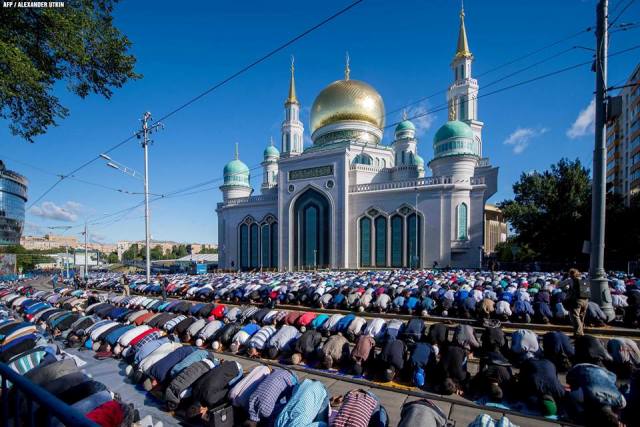
Bilal Ahmad Malik
The celebrations of Eid-ul-Fitr, literally meaning “festival of breaking of the fast”, are enjoyed throughout the Muslim world. Its celebratory occurrence marks the end of Ramadhan – the month of tazkiyah or “spiritual purification” that Muslims have gone through. The sense of generosity, humility and gratitude predominantly colors this festival. But it is very much unfortunate that only “festivity” side of this great day, actually a great act of worship, has over dominated its spiritual narratives. The preparation of new foods and sweets, getting new dresses, and visit to amusement parks has become a common trend on this day. In all this hustle and bustle, the transcendental values of this day are largely neglected. It is worth to note, the importance of this great day is actually enacted to its “background” otherwise this day has no distinction from rest of the days. It is evident from different Prophetic reports, that Eid-ul-Fitr is essentially the continuity of a month’s long process of “self-restraint” and a “conscious” promise to be persistent in it throughout the year. In order to understand the significance of this festival, let’s try to go beyond the material contents of Eid celebration and understand this day in the broader perspective of ibadah or worship- a transformative spirit.
Throughout the days and nights of Ramadhan, Muslims focus on “purification of self” and “taming of heart”- two fundamental concepts involved in spiritual upliftment from the Quranic perspective. They overwhelmingly engage themselves in religious duties to attain taqwa or “God consciousness”, enrich their ilm or knowledge and empower their imaan or faith in God. By the virtue of fasting, they get eventually prepared to cultivate “quality minds” and “compassionate hearts” in order to spread out the message of “living together” creatively. They experience the pain, torture, and sufferings of their “equal” brethren in humanity caused largely due to unavailability of food, shelter, healthcare, and education. They willingly pledge to abstain from food, water and desire, from dawn to dusk, in order to feel what it’s like to be without. Consequently, this causes them to be more generous and more concerned towards poor and deprived. After such an extensive training session a “celebration” becomes logical. This is where the Eid-ul-Fitr or “festival of breaking of the fast” comes in. On this special day, Muslims are blessed to celebrate the successful accomplishment of Ramadhan. It gives them hope of forgiveness, mercy and endless reward. They enjoy the power of a renewed spiritual cleansing and divine connection with God. Such a transcendental awakening is really a profound ‘transformation” in one’s thought and practice.
The act of “giving” and “sharing” are always important in Islam, however, they have special significance at the ending days of Ramadhan. As the month draws close, Muslims share their “worldly blessings” with those who are unfortunate to have it. In correlation with this, the festival of Eid at the end of Ramadhan is “blessing” to be celebrated by the rich and poor alike. In this regard, it is made clear that it is not befitting for a Muslim to “celebrate” when his/her poor neighbour or relative can’t do the same. Thus, besides 2.5% annual zakat and other volunteer charity, a calculated amount per individual called as “sadaqah-tul-Fitr”- which most of the Muslims are capable of paying- is mentioned as obligatory and a precondition for the “acceptance” of fasting. In case the said amount is not paid before the special Eid payer, the “acceptance” of fasting is said to remain “hang” between the heaven and earth. It is has been also reported that if the typical “generous behaviour” developed during the month of Ramdhan abruptly gets changed on the day of Eid or thereafter, it would mean that the “transformation” was just “superficial” outlook and a temporary reaction to “religious inducements”. Hence, in practice, Eid is a call to live upto the standards of Ramadhan throughout year till comes the next refreshment course- the next Ramadhan.
Another important message of Eid is peace, harmony, and spirit of brotherhood. After finishing the dawn prayers, Muslims would again assemble to offer the special Eid prayer, which is nothing except a clear-cut symbol of brotherhood. They bring together families, friends, relatives, and neighbours and greet each other with an enthusiastic message of love. Muslims of all casts, colors and backgrounds stand in one row, touching feet with feet and shoulder with shoulder, publically express their “bond of love” and “togetherness”. It promotes a sense of “participatory” community development. In short, Eid is not just a ritualistic festival rather it a comprehensive philanthropic art to work for the betterment of one’s own self and for the society as whole.
*******
(Bilal Ahmad Malik is research Scholar at CCAS, University of Kashmir. He can be mailed at gazibilal@ymail.com ).






